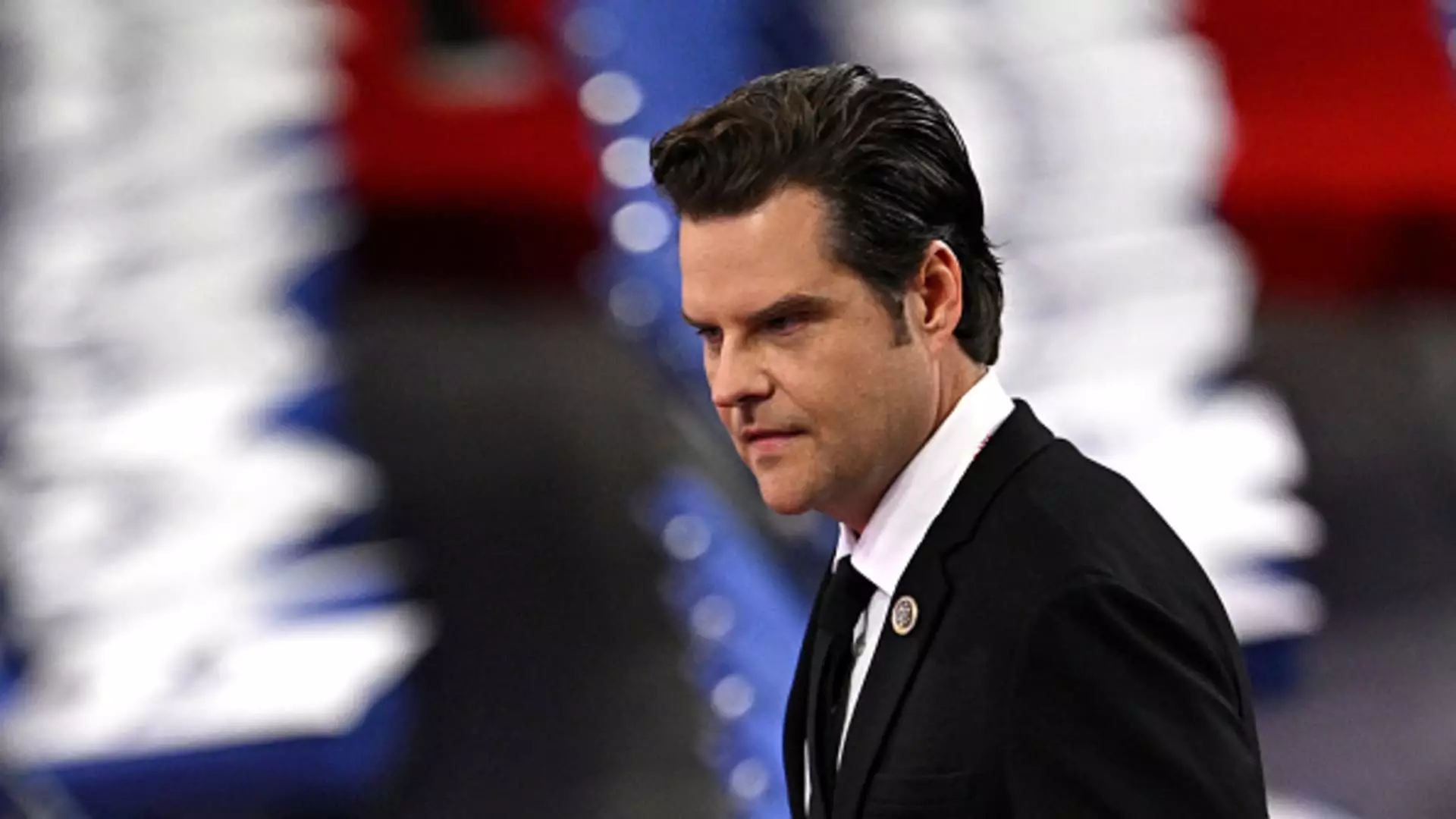The political arena in the United States is rife with controversies, with the recent allegations against Representative Matt Gaetz making headlines for all the wrong reasons. As the former president Donald Trump nominated Gaetz for the position of U.S. Attorney General, a woman has come forward, claiming to have witnessed Gaetz engaging in sexual activity with a minor. This deeply troubling assertion has sparked further scrutiny, leaving many to question the ethical implications and the potential fallout for Gaetz and the Republican Party.
According to lawyer Joel Leppard, his client has provided testimony before the House Ethics Committee, accusing Gaetz of engaging in sexual acts with a minor at a house party in Orlando in 2017. This claim, made public by Leppard, is striking and raises substantial concerns regarding the integrity of an individual nominated for a crucial law enforcement role. Interestingly, Gaetz has consistently denied these allegations, framing himself as a target of a supposed extortion scheme while maintaining that he has never been charged with any crimes related to these ongoing investigations.
Leppard’s representation of two witnesses who have delivered statements to the Ethics Committee adds to the sense of urgency surrounding these allegations. He emphasized that the American people have a right to know the truth, particularly about someone who could soon hold a position where he would be responsible for upholding the law. The ethical implications of allowing a person facing such serious accusations to assume the mantle of the chief law enforcement officer are both profound and troubling.
Gaetz’s resignation from Congress complicates matters further. Officially stepping down after Trump’s nomination announcement, the future of the House Ethics Committee investigation into his conduct remains ambiguous. The committee had previously deferred its investigation at the request of the Department of Justice, only to resume it later after the DOJ withdrew its request for deferral. With Gaetz now out of the House, many wonder what this means for the investigation — including fears among Republican members seeking clarity before any confirmation hearings proceed.
Complicating the matter further, there are voices within the Senate calling for details regarding the Ethics Committee’s findings, creating pressure for transparency. Yet, House Speaker Mike Johnson has expressed his intent to prevent the release of any such reports, arguing that doing so would breach standard protocol given Gaetz’s recent departure from Congress. This transparency-versus-secrecy dichotomy raises valid questions about accountability in the political sphere, particularly for those in positions of power.
The Republican Party faces considerable implications as these allegations unfold. While Gaetz has a robust base of support among party loyalists, the seriousness of the allegations could alienate moderate Republicans and deter independent voters. The party’s response to such controversies often dictates public perception; hence, the pressure intensifies on party leaders to navigate these accusations carefully.
As Senate Republicans prepare to vote on Gaetz’s confirmation for Attorney General, the implications of this scandal could have lasting reverberations. Although recess appointments are a possibility — as suggested by Trump — the integrity of the nomination process could take a significant hit. Watching the political landscape shift in response to these allegations could set a precedent on how moral and ethical failings are addressed within the ranks of the party.
The controversy surrounding Matt Gaetz exemplifies the intersection of politics, ethics, and justice. As allegations of misconduct loom large, the responsibilities of transparency and accountability come into sharper focus. With the public eagerly awaiting clarity on the situation, it remains essential to ensure that appropriate actions are taken moving forward, regardless of political affiliations. Understanding and addressing these allegations head-on may ultimately support the public’s trust in the political system, which is increasingly becoming paramount in today’s divisive climate. The narrative continues to evolve, prompting citizens and representatives alike to reflect on the integrity of those in positions of power.


Leave a Reply